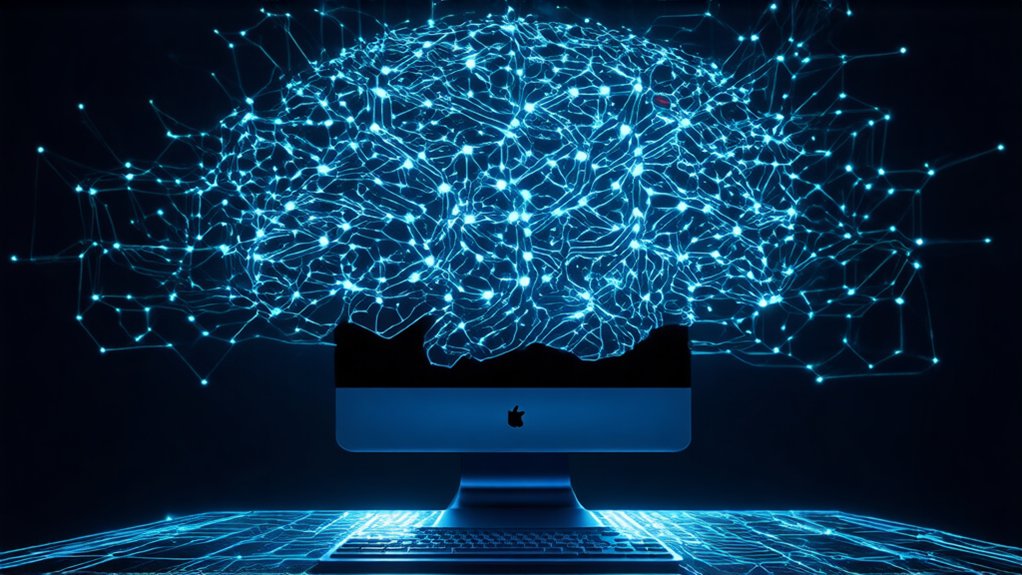As AI surges forward with unstoppable momentum, U.S. private investment hit a whopping $109.1 billion in 2024, dwarfing China’s $9.3 billion and the U.K.’s measly $4.5 billion—talk about a lopsided race. The global AI market, valued at $638 billion in 2024, is set to explode past $3.6 trillion by 2034, with a 19.2% CAGR. That’s not just growth; it’s a frenzy.
The U.S. alone? Oh, it’s flexing at $146.09 billion now, eyeing $851.46 billion by 2034. Projections scream it’ll hit $826 billion by 2030, adding a mind-boggling $15.7 trillion to the global economy by 2025. Explosive, sure, but is this a boon or a bomb waiting to go off?
U.S. AI flexing at $146B now, eyeing $851B by 2034—projections scream $826B by 2030, adding $15.7T to the global economy. Boon or bomb?
Globally, 78% of organizations jumped on the AI bandwagon in 2024, up from 55% last year. That’s a surge, folks, with adoption projected to grow at a 35.9% CAGR through 2030. By 2025, 97 million people could be in AI jobs—imagine that workforce shift. The development of these systems requires massive computing power and specialized software frameworks like TensorFlow or PyTorch.
Companies aren’t messing around; 83% call AI a top priority, and 92% plan to pump more cash into it over the next three years. Half are already upping investments. It’s like everyone’s chasing the next big thing, but will this integration spark innovation or chaos?
AI’s smarts are advancing fast, with benchmarks like MMMU jumping 18.8 points and GPQA soaring 48.9 in just a year. Generative AI pulled in $33.9 billion in investments, up 18.7%—sarcastic high-five to the hype.
Now, AI agents outpace humans in programming tasks, and it’s spilling into real life: high-quality video gen, autonomous rides, even 223 FDA-approved medical devices in 2023 versus a pathetic six in 2015. In the entertainment sector, companies like Netflix are leveraging AI for personalized recommendations, earning $1 billion annually. Waymo’s dishing out 150,000 weekly rides, and Baidu’s Apollo Go is all over Chinese cities.
Transportation’s getting smarter, safer—yet, is this progress a gift or a glitch in the matrix? Amid this AI surge, education is adapting as two-thirds of countries now offer or plan K–12 computer science education, highlighting the growing need for AI literacy. The line between benefit and threat blurs, leaving us to wonder if AI’s rise will uplift or upend our world.




